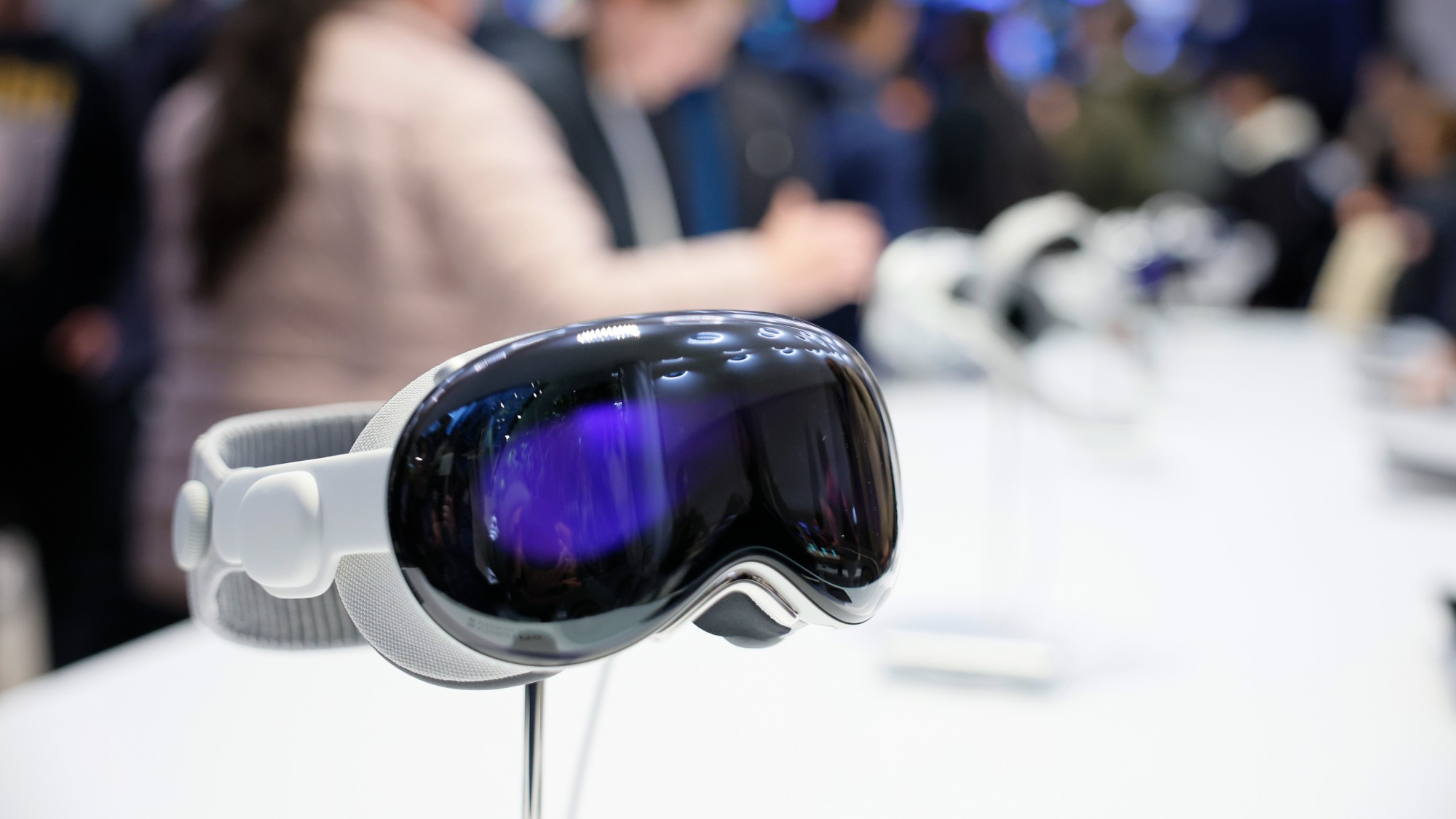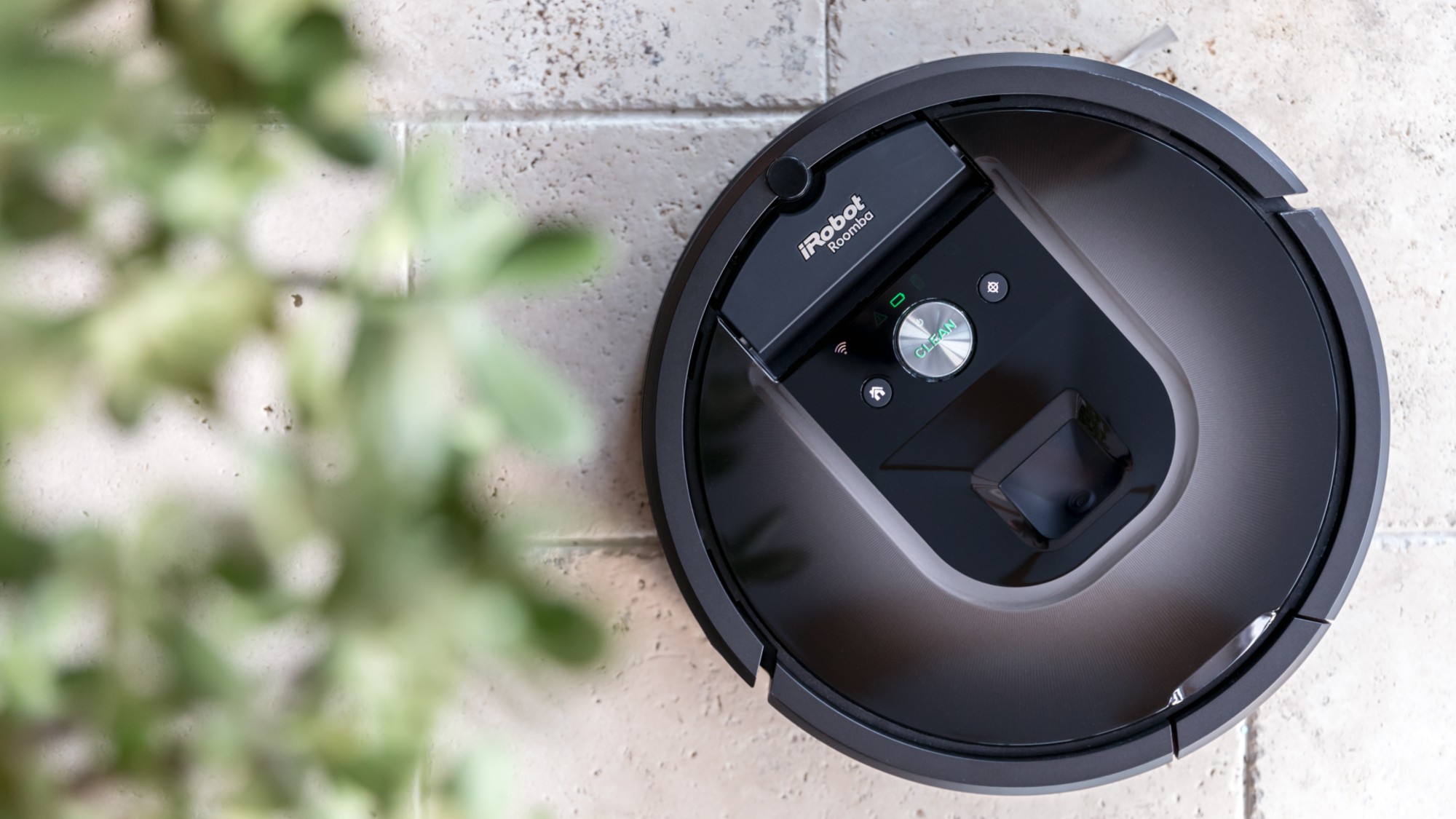The pros and cons of virtual reality
The digital world is expanding, for better and for worse


A free daily email with the biggest news stories of the day – and the best features from TheWeek.com
You are now subscribed
Your newsletter sign-up was successful
Virtual reality headsets will be popular gifts this holiday season, as more and more companies dip their toes into the cyber-ecosystem. From virtual golf experiences to gaming and meditation retreats, VR has been assimilated into many areas of our lives.
Generally, virtual reality has been deemed a mixed blessing. It has the potential to expand access to services and spaces for those who would have otherwise been precluded; but VR's interface also raises security, health and environmental concerns.
Pro: Increases exposure to green spaces
Scientists say that human access to nature and green spaces can positively affect our health. And virtual reality is now being studied as a means of bringing nature to people who would otherwise not have easy access. This may be especially useful for people with conditions that prevent them from spending substantial amounts of time outdoors. "Research shows some health improvements associated with experiencing nature in virtual reality, although these benefits are smaller than those gained by exposure to real nature," Scientific American said. While direct access to nature is irreplaceable, virtual technology can ensure people in less-green cities receive a healthful nature bump.
The Week
Escape your echo chamber. Get the facts behind the news, plus analysis from multiple perspectives.

Sign up for The Week's Free Newsletters
From our morning news briefing to a weekly Good News Newsletter, get the best of The Week delivered directly to your inbox.
From our morning news briefing to a weekly Good News Newsletter, get the best of The Week delivered directly to your inbox.
Con: Causes cybersickness
Virtual reality can have a number of side effects, particularly cybersickness. The condition is similar to motion sickness and can cause "new avenues for discomfort, such as disorientation, dizziness, nausea and increased muscle fatigue," Alexis Souchet, a cognitive ergonomics researcher, said in The Conversation. These side effects can be affected by a number of factors, including "how complicated the scene is or the way VR reproduces user movements." In addition, "task accuracy was shown to negatively correlate with cybersickness," said a 2022 study published in the journal Frontiers in Virtual Reality.
Pro: Increases access to health care services
Virtual reality can revolutionize remote health services that include minor appointments and therapy. According to a 2024 report, the global market for augmented and virtual reality in health care is expected to be worth around $19.1B by 2033, compared to $3.3B in 2023. Along with more minor health appointments and mental health services becoming more accessible, VR would allow "anyone, regardless of race, sex, age or language," to "visualize their anatomy and prognosis in a way that is easily grasped," Alon Zuckerman, the president of Surgical Theater and a leader in VR for health care, said in Forbes. "Health care providers now have the tools to truly create a personalized treatment plan while communicating and collaborating with their patients."
Con: Raises privacy concerns
Virtual reality can provide a new avenue for hackers. Researchers from University of California, Riverside, said that "spyware can watch and record our every motion and then use artificial intelligence to translate those movements into words with 90% or better accuracy." An application on a VR headset could potentially monitor movements to determine passwords or other confidential information. "Basically, we show that if you run multiple applications, and one of them is malicious, it can spy on the other applications," said Nael Abu-Ghazaleh, who led the research. "It can spy on the environment around you. And it can also expose to the attacker your interactions with the headset."
Pro: Provides interactive learning experiences
VR technology could revolutionize education. "The appeal of simulations is that they can provide training equal or nearly equal to practice with real systems, but at reduced cost and with greater safety," said Britannica. The tech is particularly applicable to medical and military scenarios. It could also provide an immersive learning experience that would never otherwise be able to be replicated. For example, students can be "transported to different places and environments that they might not otherwise have access to, such as a historical site, a foreign country or even outer space," said Simbott.
A free daily email with the biggest news stories of the day – and the best features from TheWeek.com
Con: Raises sustainability concerns
The expansion of virtual reality would be like the "internet on steroids," Todd Richmond, the director of the Tech + Narrative Lab and a professor at the Pardee RAND Graduate School, said to TechTarget. While the technology is fairly new, the ultimate goal is to create a metaverse or an expansive virtual reality. For this to come to fruition, a lot more technology will be required. The potential use of cryptocurrencies, which are known to be taxing on the environment, might be required. In addition, there are "growing concerns about the environmental impact associated with the increasing demands for hardware," because "users will need specialized equipment such as headsets, and cloud computing providers will have to implement more capacity to handle the anticipated spike in demand for compute power."
Devika Rao has worked as a staff writer at The Week since 2022, covering science, the environment, climate and business. She previously worked as a policy associate for a nonprofit organization advocating for environmental action from a business perspective.
-
 Political cartoons for February 15
Political cartoons for February 15Cartoons Sunday's political cartoons include political ventriloquism, Europe in the middle, and more
-
 The broken water companies failing England and Wales
The broken water companies failing England and WalesExplainer With rising bills, deteriorating river health and a lack of investment, regulators face an uphill battle to stabilise the industry
-
 A thrilling foodie city in northern Japan
A thrilling foodie city in northern JapanThe Week Recommends The food scene here is ‘unspoilt’ and ‘fun’
-
 Are Big Tech firms the new tobacco companies?
Are Big Tech firms the new tobacco companies?Today’s Big Question A trial will determine whether Meta and YouTube designed addictive products
-
 AI: Dr. ChatGPT will see you now
AI: Dr. ChatGPT will see you nowFeature AI can take notes—and give advice
-
 Can Europe regain its digital sovereignty?
Can Europe regain its digital sovereignty?Today’s Big Question EU is trying to reduce reliance on US Big Tech and cloud computing in face of hostile Donald Trump, but lack of comparable alternatives remains a worry
-
 Will AI kill the smartphone?
Will AI kill the smartphone?In The Spotlight OpenAI and Meta want to unseat the ‘Lennon and McCartney’ of the gadget era
-
 Claude Code: Anthropic’s wildly popular AI coding app
Claude Code: Anthropic’s wildly popular AI coding appThe Explainer Engineers and noncoders alike are helping the app go viral
-
 TikTok finalizes deal creating US version
TikTok finalizes deal creating US versionSpeed Read The deal comes after tense back-and-forth negotiations
-
 Data centers could soon be orbiting in space
Data centers could soon be orbiting in spaceUnder the radar The AI revolution is going cosmic
-
 What is Roomba’s legacy after iRobot bankruptcy?
What is Roomba’s legacy after iRobot bankruptcy?In the Spotlight Tariffs and cheaper rivals have displaced the innovative robot company
